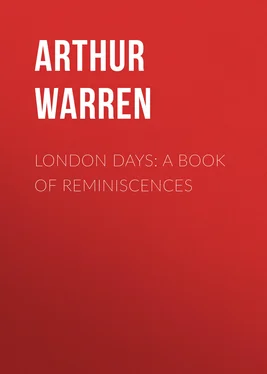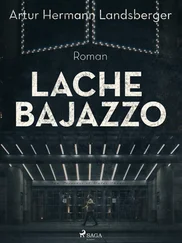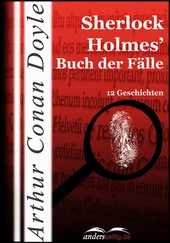Arthur Warren - London Days - A Book of Reminiscences
Здесь есть возможность читать онлайн «Arthur Warren - London Days - A Book of Reminiscences» — ознакомительный отрывок электронной книги совершенно бесплатно, а после прочтения отрывка купить полную версию. В некоторых случаях можно слушать аудио, скачать через торрент в формате fb2 и присутствует краткое содержание. Жанр: Биографии и Мемуары, История, foreign_antique, foreign_prose, на английском языке. Описание произведения, (предисловие) а так же отзывы посетителей доступны на портале библиотеки ЛибКат.
- Название:London Days: A Book of Reminiscences
- Автор:
- Жанр:
- Год:неизвестен
- ISBN:нет данных
- Рейтинг книги:5 / 5. Голосов: 1
-
Избранное:Добавить в избранное
- Отзывы:
-
Ваша оценка:
- 100
- 1
- 2
- 3
- 4
- 5
London Days: A Book of Reminiscences: краткое содержание, описание и аннотация
Предлагаем к чтению аннотацию, описание, краткое содержание или предисловие (зависит от того, что написал сам автор книги «London Days: A Book of Reminiscences»). Если вы не нашли необходимую информацию о книге — напишите в комментариях, мы постараемся отыскать её.
London Days: A Book of Reminiscences — читать онлайн ознакомительный отрывок
Ниже представлен текст книги, разбитый по страницам. Система сохранения места последней прочитанной страницы, позволяет с удобством читать онлайн бесплатно книгу «London Days: A Book of Reminiscences», без необходимости каждый раз заново искать на чём Вы остановились. Поставьте закладку, и сможете в любой момент перейти на страницу, на которой закончили чтение.
Интервал:
Закладка:
I intended to ask him for a job, for I had decided to settle awhile in Boston and turn my London experiences to account if the opportunity could be made.
A boy came to the room where I had waited on the anxious seat for an unhappy quarter of an hour.
"Mr. Holmes will see you," he said. "Come this way."
Holmes was the man's name, was it! Yes, John H. I had learned that much, and I followed the boy to an inner office. A dark-haired, slender, agreeable-mannered man, who looked rather like the Whitelaw Reid of that time, rose from his desk. As he did so I said:
"Mr. Holmes, I believe."
"Yes," said he, "and you are the writer of that article?" naming it.
"Yes," said I.
He held out his hand, and smiled. We shook hands, and I tried to look as if it were my daily occupation to be welcomed by the editors of powerful journals. Naturally, I did n't feel that way, and was nervously wondering what to say next. That anxiety vanished as the editor asked:
"Are you at liberty to do any more work of that kind, or of any special kind, for us?"
"Yes," said I, concealing, I hoped, my eagerness and delight.
"Then I will take as much as you are willing to write," said he, "and pay you ten dollars a column, and when you go anywhere for us, your expense bill."
This seemed a fair beginning, particularly as I had not been compelled to ask for it, as I had expected to do. When I closed the door behind me and descended the stairs, I felt an elation of spirit that was natural enough in a young chap who was more than five months short of his twenty-third birthday.
And so, with the beginning of 1883, I took the plunge into journalism. There followed five more or less adventurous years which carried me from one end of the country to the other and across the Atlantic and back again. Then in 1888, I was appointed London correspondent of the same paper, a position which I held for nine years until called elsewhere. It is with memories and impressions of the London Days of that time, and of some of their celebrated personages, that the following pages are concerned.
CHAPTER V
BROWNING AND MOSCHELES
You will look in vain now for the old brown-brick bungalow that stood, for the most part concealed by trees and shrubs, within the railings of the park-like enclosure halfway down Sloane Street, on the left-hand side, as you go from Knightsbridge. It stood there till the end of the eighties. If you walked there in the days of my early acquaintance with it, or glided through Sloane Street in a hansom, the chances were that the bungalow would still escape your glance, sheltered as it was by foliage. But from the top of any 'bus you could make it out readily, and you would wonder, as most 'bus fares did, what lucky or eccentric fellow lived within the very plain walls and had all that Cadogan enclosure as a back garden. Probably your neighbour on the 'bus top would tell you, 'bus neighbours being at all times well stocked with misinformation, that the favoured dwelling was the home of the gardener of the enclosure. But it was not. It was the home of my delightful friend, Felix Moscheles, and there you could find Robert Browning almost any Sunday afternoon when he was in London.
Felix Stone Moscheles was the son of Ignaz Moscheles, composer and pianist, whose intimate friendship with Mendelssohn is revealed in the latter's published correspondence. Felix was born in London February 8, 1833, at Number 3 Chester Place, Regent's Park, and Mendelssohn acted as his godfather at the christening in St. Pancras Church. Felix died at Tunbridge Wells, December 22, 1917. He was as kind a man as ever lived. He was an artist by profession, fond of music and musicians, as you might expect him to be; he spoke several languages fluently and with equal charm—English, French, German, Esperanto, and I know not what else—and he was passionately attached to movements for world peace. We know that nothing made for the peace of the world down to mid-1914; that while Germany had been deceiving it, the world had lulled itself to sleep with "drowsy syrups" and ecstatic daydreams. I think the awakening killed my dear old friend. That is not surprising. He was over eighty-one when the war broke out, and almost eighty-five when he died. Down to 1913, when I saw him last, I used to say that he was the youngest man of my acquaintance. He had the optimism of youth, its buoyant spirit, its gallant outlook.
When I first knew Moscheles he was only fifty-five or fifty-six, and he was passing cakes to the ladies, while his wife poured tea, and a stoutish man in a grey checked suit, and with grey moustache and chin-beard, was talking something which seemed like philosophy, and was certainly not poetry, to a mixed group in a cosy corner. It was one of the happy points about Moscheles' Sunday afternoons that if you cared to continue talking with another caller and the other caller cared to continue to listen, or to talk with you, you were not routed up to exchange commonplaces about the weather with somebody else who needed to be assured that it rained, or that the sun was shining. You could flit from group to group, and find a place where you fitted, and the host or hostess would contrive, if you were unknown, to make you known to some one without interrupting some one else's story, so that no one was left adorning the wall.
The stoutish, grey man in the grey checked suit was Robert Browning whose afternoon-tea manner was quite simple, as unaffected as that of a bank-chairman contemplating dividends or deposits. He was not in the least a posing poet. He had been a great friend of Moscheles for a long time, and the latter spoke of him as "my literary godfather." Moscheles, at this time, was preparing for publication "Felix Mendelssohn's letters to Ignaz and Charlotte Moscheles." I had something to do with persuading him to write "In Bohemia with George Du Maurier." I had been looking in his studio through a mass of autograph letters and sketches relating to his years in Paris as an art student, the "Trilby" years, and, as Du Maurier's book and the play adapted from it were the rage of the time, Felix was encouraged to write around the letters he had, and Du Maurier's early sketches, and about the characters in the romance of the hour, and to send some of the chapters to the Century Magazine , and afterward to produce the whole as a book.
Moscheles was brought up among celebrities, and was surrounded by the famous all his life. Mendelssohn, Joachim, Malibran, Lablache were, in his boyhood, family friends. He attracted distinguished persons as long as he lived. When he was thirteen the family moved from London to Leipzig, at Mendelssohn's instigation. Mendelssohn was eager that his friend, Moscheles' father, should become a professor in the Conservatoire which he was founding at Leipzig. And so the move was made, Ignaz Moscheles relinquishing his London career and its worldly advantages in order to live near his friend. Felix, who at ten had begun his education at King's College, London, had, at thirteen, to find it in Germany. But not for long; when he was seventeen, determined to become an artist, he began studying drawing and painting in Paris, at the Atelier Gleyre. Having seen something of the troubles of Germany in 1848, he was now to see the troubles of France which led to and followed the flight of Louis Philippe, and attended the coup d'état .
It was during the Atelier Gleyre period that he met George du Maurier and had the amusing experiences he described afterwards in the book to which I have alluded. From Paris he went to Antwerp, where he studied under Van Lorino at De Keyser's Academy, and where he had as fellow students Laurens Alma-Tadema, Maris, and Heyermans. I don't know when he returned to London to settle down, but when he did so he began a career that was to be rich in friendships, helpful to all, and productive in portraiture.
Читать дальшеИнтервал:
Закладка:
Похожие книги на «London Days: A Book of Reminiscences»
Представляем Вашему вниманию похожие книги на «London Days: A Book of Reminiscences» списком для выбора. Мы отобрали схожую по названию и смыслу литературу в надежде предоставить читателям больше вариантов отыскать новые, интересные, ещё непрочитанные произведения.
Обсуждение, отзывы о книге «London Days: A Book of Reminiscences» и просто собственные мнения читателей. Оставьте ваши комментарии, напишите, что Вы думаете о произведении, его смысле или главных героях. Укажите что конкретно понравилось, а что нет, и почему Вы так считаете.












